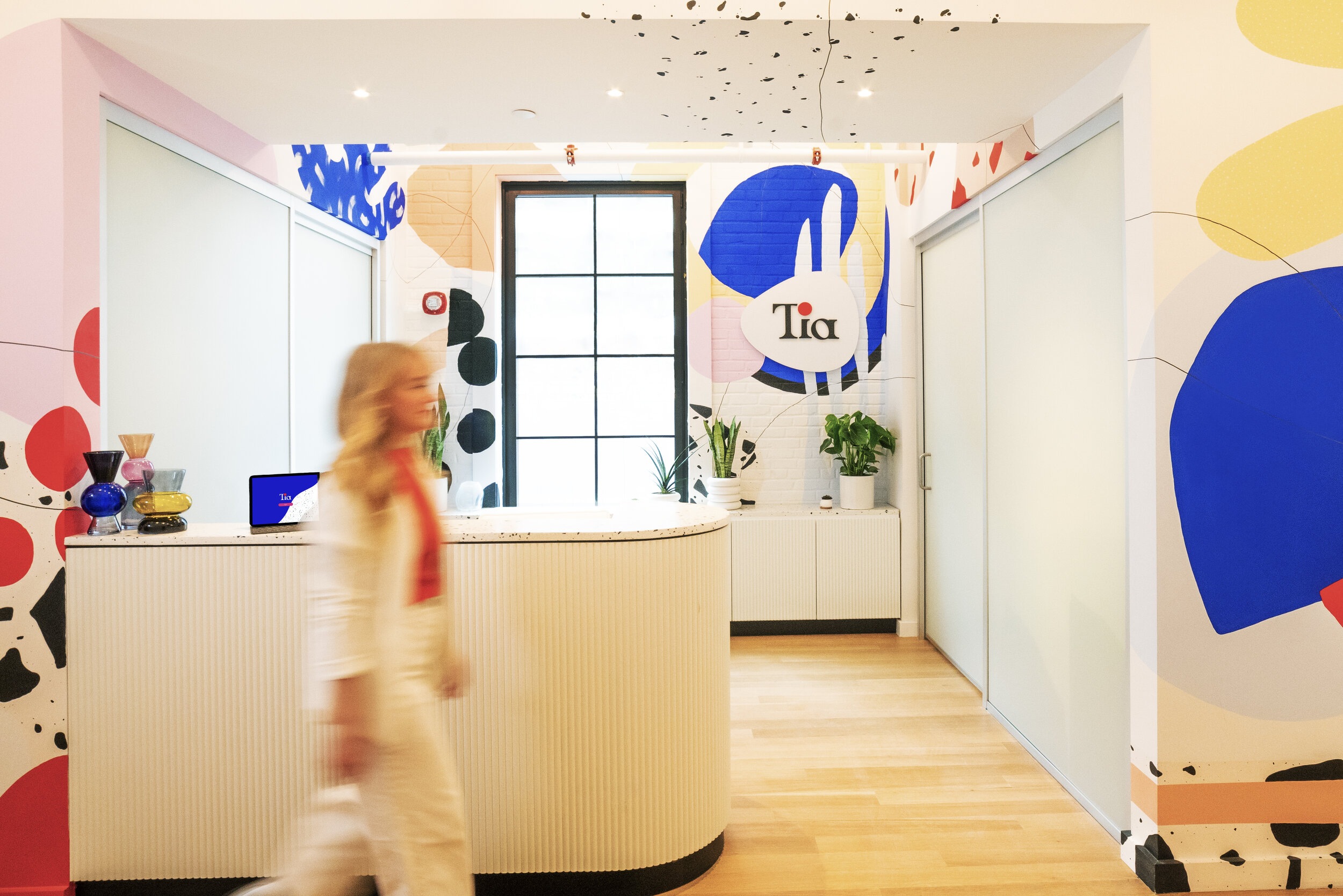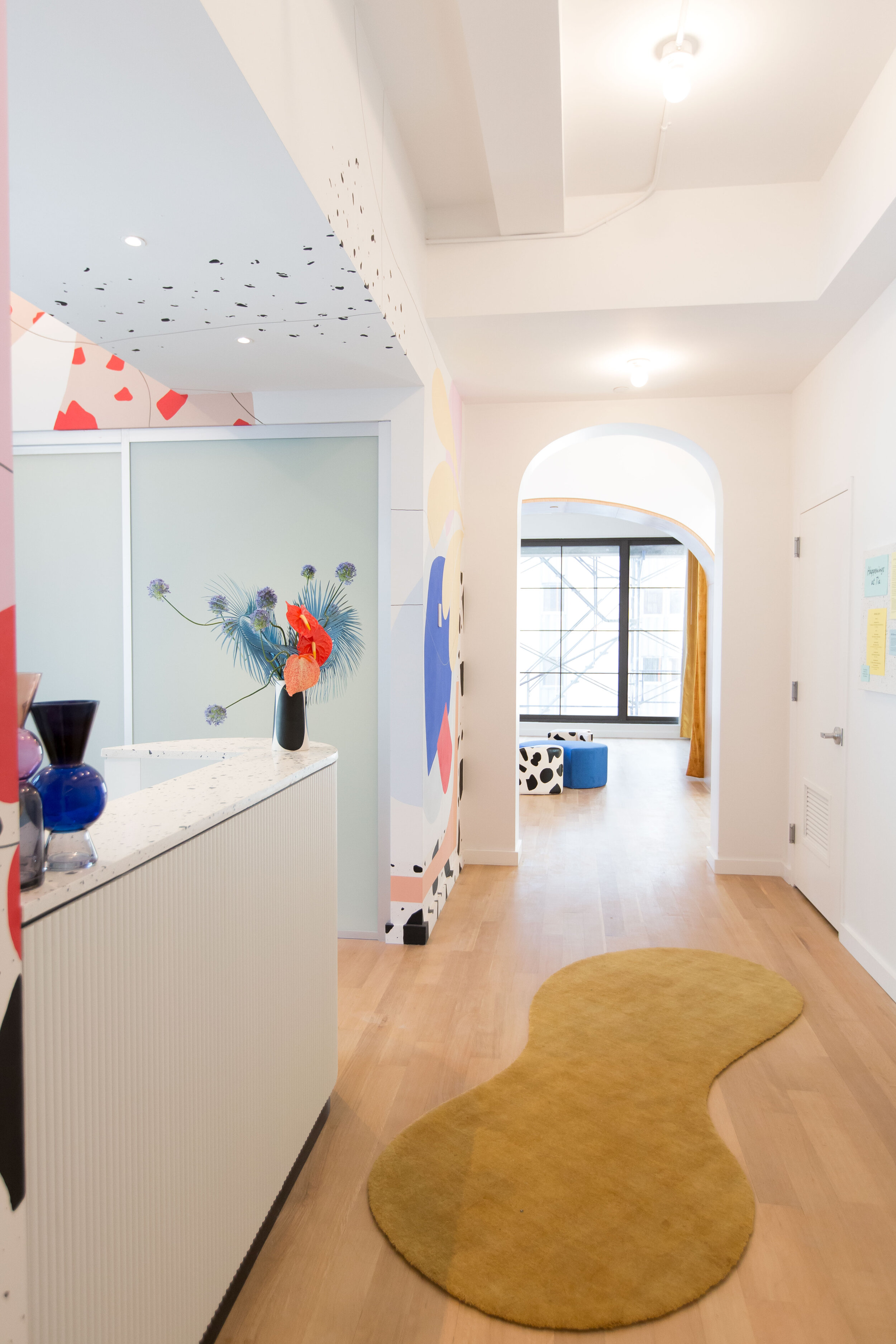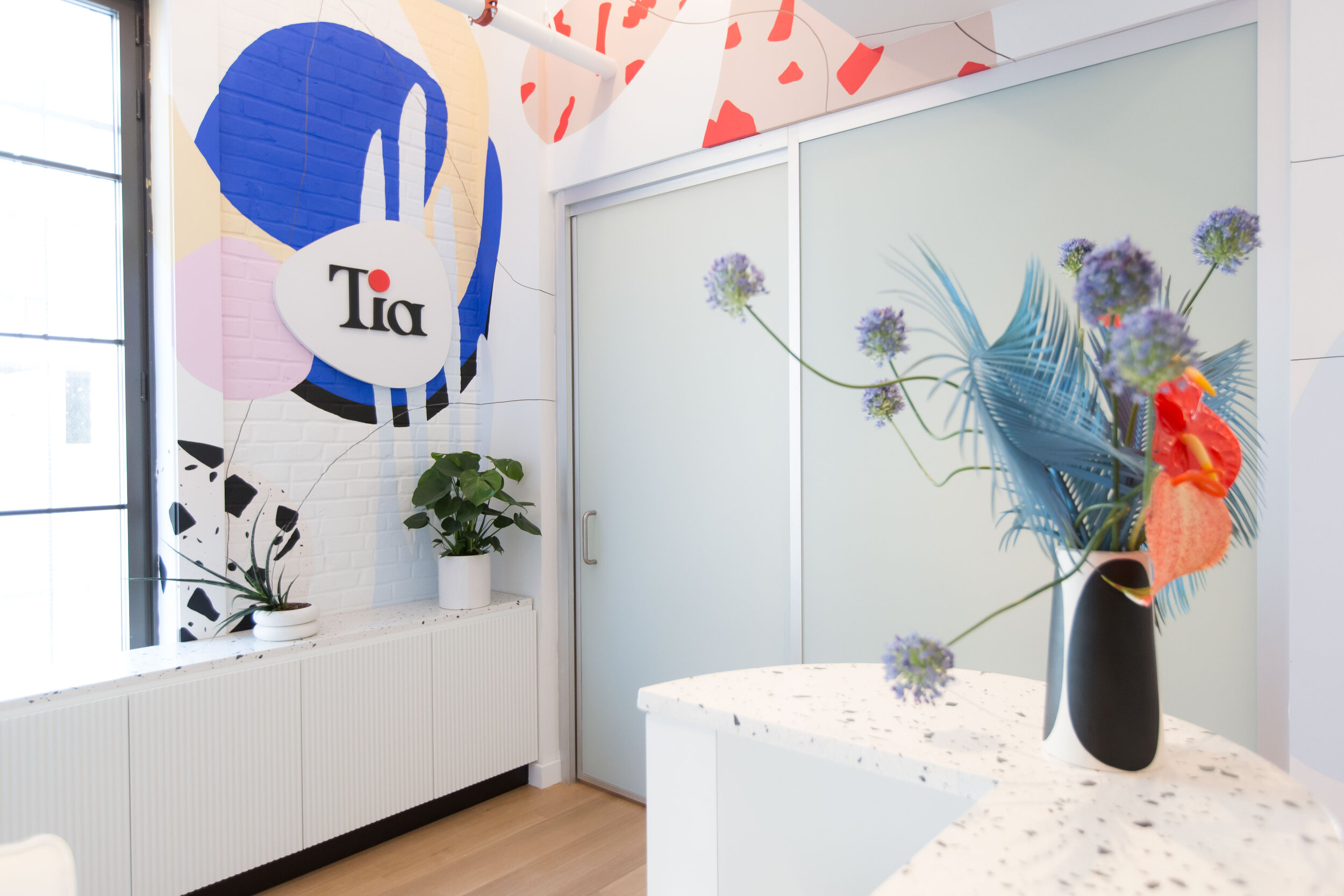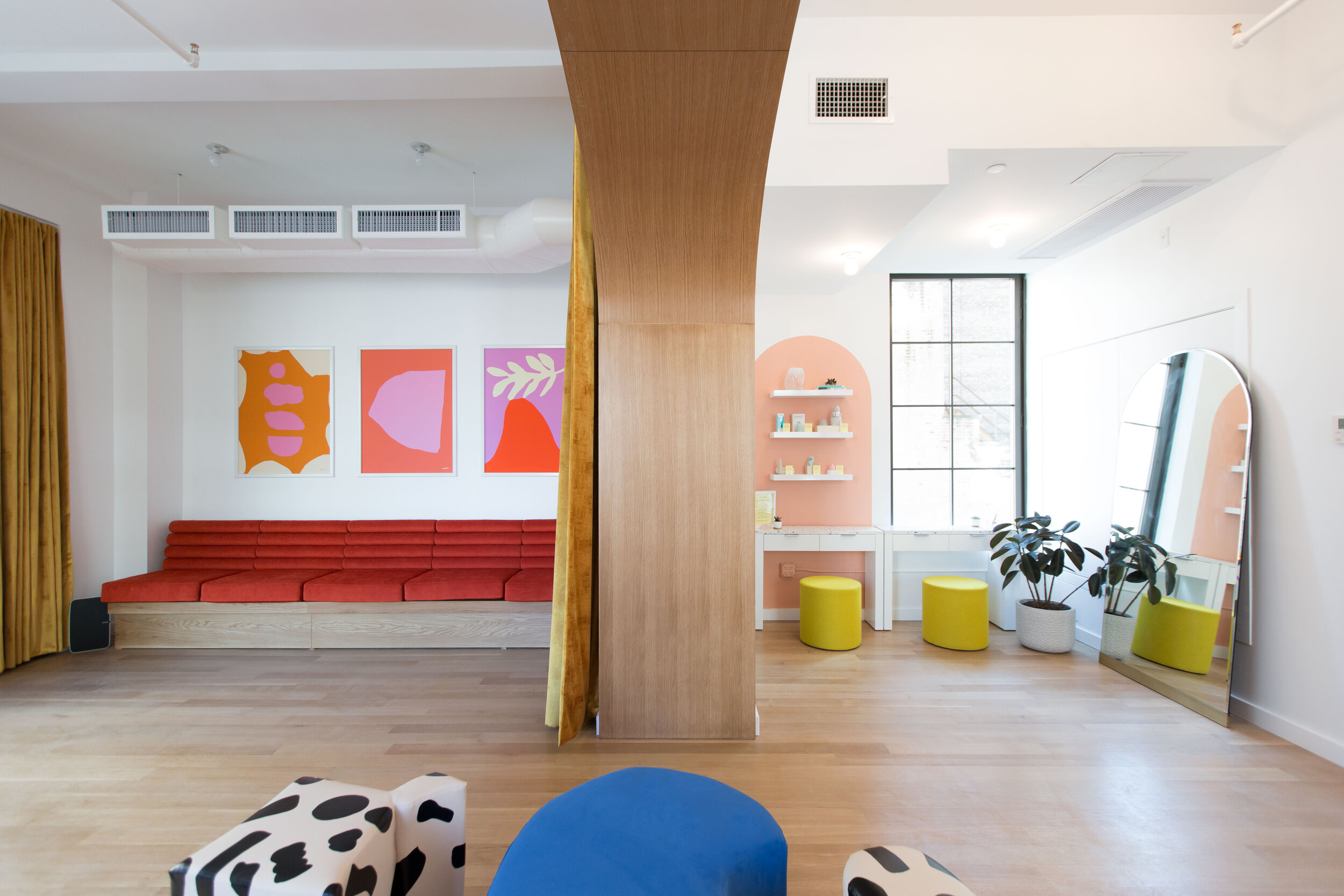F079 Women's health and the dream but real healthcare setting (Carolyn Witte)
Healthcare is anything but relaxing once you're a patient. But what if you could look forward to your appointments as you look forward to a wellness visit?
This was among the guidelines designers of Tia - the next generation women's healthcare platform - are operating under in their product development.
Tia was first a search-engine like support companion for women interested in anonymous search for reliable health information. By today, Tia is an ecosystem of services: a personalized women's health information provider, a brick and mortar clinic in New York City.
What is women’s health?
Carolyn Witte.
The Tia journey started with a focus on reproductive and sexual health care questions. "We soon found that women didn't just want to ask us questions about birth control; they wanted to ask questions that were much more wider-ranging about all aspects of their health care. This was our aha moment number one that said women's health isn't just reproductive health and gynecology, women don't put their healthcare into neat little boxes that match up to new specialty medicine," remembers co-founder and CEO Carolyn Witte. The company observed that women were trying to use Tia as a doctor for second opinions. When Tia was only an information provider, users were referred to healthcare providers. "We saw women brought and used their app in the doctor's office and were messaging us in the waiting room with questions like "Hey Tia, what is a deductible? Hey Tia, can you explain my co-pay in the exam room? Hey Tia, which IUD should I get, I don't understand these options?" That was when the team started thinking about redefining the standard of healthcare delivery as a whole and about building a Tia Clinic.
Healthcare "the Tia way"
Healthcare "the Tia way" is delivered holistically. The Tia clinic looks more like an oasis than a healthcare institution. Gowns for the staff and the patients were designed by local artists, interior design from flowers, murals, and other details serve a very thought-out purpose. "We are all about personalization, shared decision-making in service of giving patients more choices. We're all about collaborative care. When a woman books res annual well-woman exam, which is 100% covered service for all women of all ages at every single year under the Affordable Care Act, it feels more like booking a yoga class then booking a healthcare visit," says Carolyn Witte. During a check-up women get asked questions such as "What is optimal health to you? How were you born? How did you sleep yesterday?"




The meaning of brand feeling in healthcare
Carolyn Witte started Tia after leaving Google. She worked at Google as a Team Lead at the Creative Lab, where she led a team of designers, writers, filmmakers, and engineers to develop & grow Google's core mobile consumer products — Search, Maps and Translate. After leaving, she began working on the Tia app because of her personal dissatisfaction with how healthcare for women was delivered, especially the lack of soul and trust in healthcare.
She sees her dive the healthcare industry without the industry insight, only her personal experiences with the healthcare system, as a blessing and a challenge. "In many ways to have that outsider's perspective allowed me to think outside the box and come up with solutions that I might not have come up with if I had known what I know now," says Carolyn Witte.
Her background in brand feeling and personification of technology enabled her to bring a human-centered approach to healthcare design. "Patient-centered care is a buzzword a lot of people are using, but what do they really mean? We constantly encourage our employees to bring their perspectives and their experiences into their design problem-solving process, in which we try to put aside all the things that we now know about how healthcare "works" in the U.S. but instead try to look at how a regular person would expect us to work," explains Witte.
Healthcare CAN be affordable
Members of the Tia clinic in New York pay a 15 dollars monthly fee. Patients get more face-time with the doctor compared to the normal healthcare setting. The Clinic accepts insurance payments and has a transparent price list for those without insurance. The company designed an affordable care model where nurse practitioners can do a lot of consultations, thus driving down the cost of care, with doctors seeing only the most complicated cases.
During the COVID-19 crisis the clinic is closed, with care moved in the virtual setting. The company is also organising several online events for its community. As for expectations regarding the future and transition “back to normal”, it is still difficult to make predictions, says Carolyn Witte: “We will be focused mostly on scaling, with a new insight into possibilities about online to offline models and relation between virtual vs. in-person. I think people will be more open to investing in preventative health, because we see what happens if you don’t.”
Tune in for the full discussion:
Some questions addressed:
Before starting Tia, you worked a Team Lead at the Creative Lab, where you led a team of designers, writers, filmmakers, and engineers to develop & grow Google's core mobile consumer products — Search, Maps and Translate. It seems like a very valuable baseline for starting your own business in what is essentially convenient, user-friendly care delivered with empathy. Can you describe a little bit of your thought process when thinking about starting Tia, based on the habits understanding you gained at Google?
Tia is an ecosystem of products, tools, and services — from the Tia app to the Tia Clinic, a real-world gynecology & wellness practice based in NYC. How is the current situation affecting you? Are clients still coming to the Clinic? Do you have any special protocols in place?
- You came in healthcare as many entrepreneurs, because of your own personal health problems. Looking back: When you jumped off the airplane, what was your impression/knowledge about healthcare compared to today?
- While working at Google, you were working on questions such as how to personify tech and why the brand feeling is important. Can you describe the Tia discovery journey, how you took all those aspects into account? (This is just a suggestion: I think it might be useful to first explain to the audience, what do we mean under personifying tech and brand feelings and in the second part of the answer talk about how does that apply to Tia. Starting with the story about the work at Google and how your personal journey led to Tia)
- One of the things I find inspiring is that you're working in Femtech, focusing on redefining our attitude towards healthcare, so not health, but healthcare, and designing new business models. So let's go through these points: first, what do you define as Femtech?
- Because no one likes to pay for healthcare, you took a holistic approach towards health, and are building a health system where wellness and community play an important part. What kind of wellness services does Tia Clinic have and how did you decide on what to include?
- Let's talk about the role of community: you first applied your brand building and user-centric design understandings built from your time at Google to a free app with 2,000+ users across the country. Hardly later, this evolved into a brick and mortar clinic in New York. You host various events there for your members and in general, put a lot of effort into serving your community. So what is the tole of community in the whole story? How was it built? How do you decide what else could be beneficial to the members?
- How are you supporting the community, members, clients in the current situation? Is the Clinic closed?

